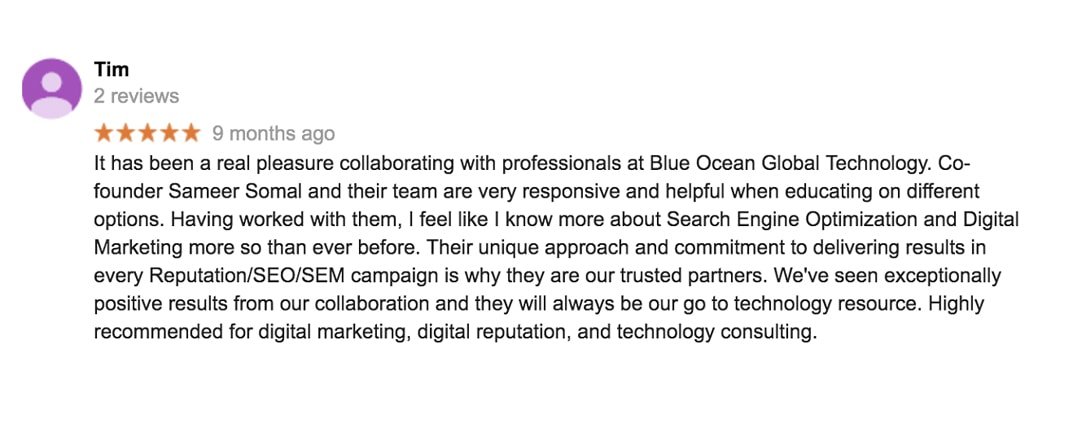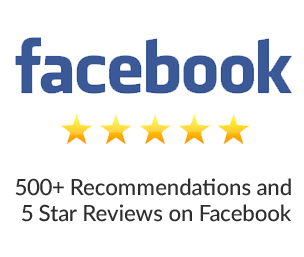- What is Search Engine Optimization (SEO) and how does it work?
SEO stands for search engine optimization. It is the process by which an entity (e.g., a website, person, business, or institution) engages in specific practices to change or improve its ranking on the Search Engine Results Pages (SERPs) of internet search engines. The most common search engines targeted for SEO are Google, Bing, Yahoo, and DuckDuckGo. SEO methods are customized for each search engine and the needs of individual parties.
There are ethical ways of performing SEO that stay within the bounds and rules of search engines, such as developing high-quality content associated with a person or business that achieves high rankings through its own merits. By contrast, “black hat” SEO techniques use less ethical means of improving search rankings, such as fake websites, manipulative website information, keyword bombing, and other tactics that search engines will punish with low rankings if detected.
- How does SEO work, step by step?
The specific needs of each client dictate the ways in which SEO techniques are employed, but certain steps apply in most cases.
First, an SEO audit is conducted. This in-depth review will allow a company or an outside SEO consultant to inventory and explore a company’s current SEO standings with the major search engines. This will reveal areas where the company can easily improve, and where more work will be needed to improve its standing on search engine results pages. These tasks often involve keyword analysis, website management and organization, and other SEO improvement basics.
Second, multiple techniques are employed to remove or push down negative content or to replace it with positive content that ranks higher in search results. For removal, methods include contacting the hosting website or provider of the negative content and asking for the content to be updated or deleted. For positive content, strategies include publishing high-quality content that can backlink to the original site; connecting real, authentic social media accounts; and optimizing the person’s or business’s website to be search engine friendly. Search engine rankings can be addressed correctly in many different ways.
Finally, the slow progress of improving rankings is continuously monitored over long periods of time—usually months, and sometimes years. Because of the viral nature of the internet, negative content can emerge seemingly out of nowhere, as the result of someone sharing news on a popular social media account.
- What are Search Engine Optimization (SEO) tools?
SEO tools are programs, software, and other applications that can be used to make websites search-engine friendly, increase the visibility of content, and generally improve a site’s ranking on Google, Bing, or another major search engine. Many of these tools can be used for optimization to ensure, for example, that Google’s web crawlers not only see a site but also recognize that it is filled with high-quality, well-made content.
Monitoring tools such as Google Alerts help you keep up with newly published content that includes specific keywords. As a result, you can react quickly to breaking news or information that could help or harm your search engine rankings.
Some SEO devices are as simple as a grammar and spellcheck tools for articles and webpages. Many search engines will include the quality of content as a factor in their rankings, with “quality” including elements such as proper grammar, correct spelling, good formatting, and other small factors that contribute positively to a site overall.
- How many types of SEO are there?
SEO types can be divided into a few general categories, which can overlap to varying degrees. “White hat” SEO involves optimization techniques that are approved by a search engine’s guidelines. “Black hat” SEO uses manipulative techniques and rule loopholes that are often ethically questionable to force higher rankings on SERPs. Search engines are becoming better and better at rewarding white hat SEO and recognizing and punishing black hat SEO, which typically works only over a very short term. Akin to black hat SEO, “negative” SEO seeks to lower competitors’ Search Engine Results Page (SERP) rankings, letting other website properties take the place of previously highly ranked pages.
“On-page” SEO seeks to directly optimize a website or page to improve its recognition and rankings, while “off-page” SEO uses tactics such as backlinks, social media sharing, and other indirect networking to improve another site’s rankings. “Technical” SEO is similar to optimization, except that it appeals directly to a search engine’s web crawlers. Technical SEO often involves overhauls to a site’s structure and data so that the site can be easily read by a search engine, which therefore improves its ranking.
- What are the best SEO strategies?
The best SEO strategies are customized to the needs of the individual or business looking to improve their Search Engine Results Page (SERP) rankings. For example, a business with little to no social media presence can create authentic accounts on multiple social media sites that publish good, interesting content, boosting the business’s online visibility, which in turn leads to better search rankings. A company might issue press releases or other content itself, while an individual might have to employ other techniques (e.g., interviews, social media efforts, creating their own website) to boost their search results.
Continuous effort must be put into any SEO strategy for it to be effective, thanks to the ever-changing nature of both search engine algorithms and the internet itself. The best and most effective SEO strategies are often long term, varied, and relentless. Therefore, beware of any consultant who promises quick jumps in SEO rankings. Such consultants often use unethical techniques that work only in the short term, and the type of SEO they employ is often punished by search engines, which only makes things worse for the client in the long run. The client sees their rankings eventually plummet, and they will have fewer options for improvement in the future because they are now on the search engines’ radar.
- How many SEO keywords should I use?
The number of SEO keywords you should use depends on your goals and resources available. But the key is not really the number of keywords used but how they are used. Keywords should be included based on each individual piece of content on a site rather than throughout a website as a whole. Search engines associate this approach with higher-quality content and therefore consider it more valuable when ranking.
Additionally, each piece of content should be unique with differentiated keywords. Publishing the same information with only slight variations and the same keywords won’t have much of an effect on rankings. Keywords need to be highly specific to the content being created. For example, just having “SEO” as a keyword in a piece of content dooms it to drown in an ocean of other articles about SEO. Be precise with your keywords, and search for them on Google beforehand to find combinations that will not produce an overwhelming amount of competition.
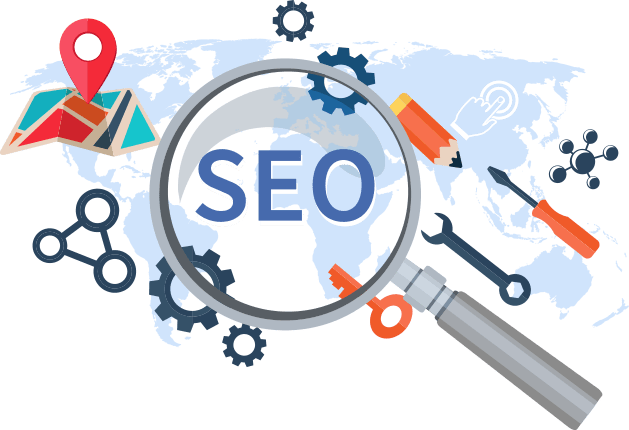
Are you finding clients online?
We specialize in building a strong digital presence and creating a stellar online first impression. We increase your web traffic and help you generate leads.
Search Engine Optimization
Drive Laser-Targeted Traffic to Your Website.
Our skilled team of search engine optimization (SEO) professionals combines decades of successful client work experience. We have helped clients across different industries to reach their digital marketing goals.
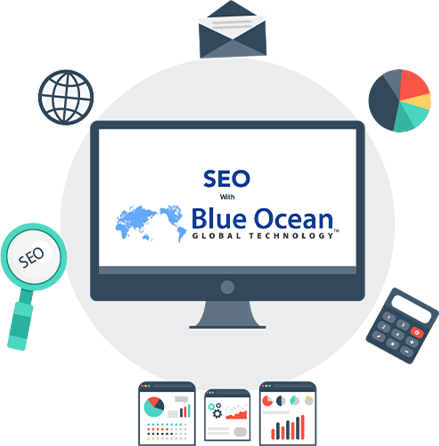
SEO with Blue Ocean Global Technology means you receive the following:
- All your pages analyzed to reveal areas of untapped potential.
- Suggestions and ideas to improve keyword results.
- An entire SEO team that is always at the ready to make necessary optimization changes.
- Detailed monthly or quarterly reports that help you understand where your website is heading.
Understanding SEO
It is estimated that Google uses more than 200 independent factors to determine the rank of each web page that is part of the Google index. In addition, dozens of minor and major updates per year may alter the weight of one or more of these factors. Some of them might even become obsolete, while new ones are added. In other words, SEO is like a living organism which develops and evolves over time. This is why it’s so easy to lose track of what’s currently happening in the world of SEO and miss new trends. We recommend that you put your trust in a reliable partner who has the resources to stay ahead or current.
Talk to an Expert Today for your SEO Strategy & Consultation.
Establish Your Business Online.
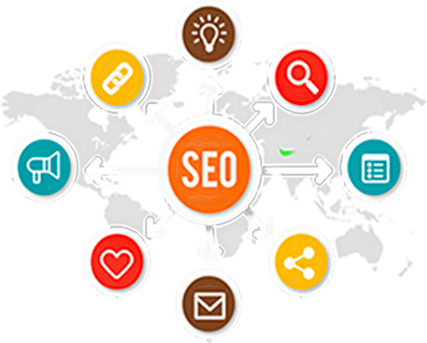
What Is SEO?
SEO is the foundation of your business’s digital presence and reputation management.SEO stands for Search Engine Optimization. The goal is to optimize a website’s rankings in search engines—most importantly, Google—to make the site more visible online. Higher visibility results in lots of organic (non-paid) traffic pouring in 24/7, which in turn results in more conversions, paying customers.
Modern SEO combines creative and technical elements that are required to improve keyword rankings, increase online awareness among users, and drive real traffic. There are many aspects to this important aspect of digital marketing, from website structure and page content to a site’s backlink profile and brand mentions. And a search-engine-friendly website enhances user experience, too.
What Makes SEO Important?
With the right analysis tool, you would soon discover that the majority of web traffic coming to your website originates from search engines. In fact, you might be surprised how low a percentage of users are directed from social media platforms and other traffic sources. Simply put, online users still use search engines as their primary method for navigating the web.
The biggest advantage of traffic coming from search engines is that it’s laser-targeted. Chances are good that users will find exactly what they are looking for on your website. As a result, conversion rates are extremely high compared to other digital marketing channels. Conversely, this also means that if your website cannot be found in search engines, you miss out on a vast opportunity for new business and will eventually fall behind your competitors in an increasingly competitive environment. In the search engine results pages (SERPs), the page ranking first receives the most traffic. It accounts for about one-third of all clicks, which is about twice as much as the second position. Results 3 to 5 are also important and usually receive between 2 to 10 percent of the traffic.
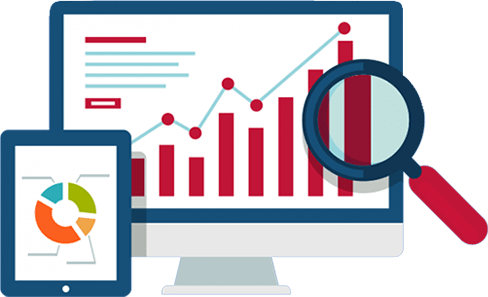

Why Are Search Engines Reliant on SEO?
The algorithms that are devised for search engines are constantly evolving to provide better results for their users. However, they still need help in understanding the purpose of a website and specific web pages. This is how proficient SEOs can effectively improve visibility with minimal effort, while novice SEO professionals might bury a site in the depths of the indexes.
On-Page and Off-Page SEO
There are many strategies and techniques that can be applied to optimize a website in a way that search engines value. First, we can differentiate between elements that can be improved on a web page (or an entire website) and those that can be improved off-page (or off-site)— thus, the terms on-page SEO and off-page SEO.
On-Page SEO: Your Racing Car
Proper SEO always starts with flawless, impeccable on-page optimization. We say this because we know from firsthand experience that a majority of people pay too much attention to off-page SEO too early in the game.
The best part about on-page SEO it is that you will see results almost immediately! These are some of the most important on-page elements that our team checks and optimizes for all every client.
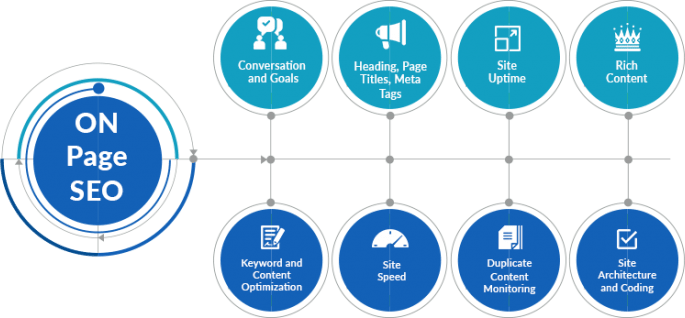
The most important On-Page SEO elements include the following:
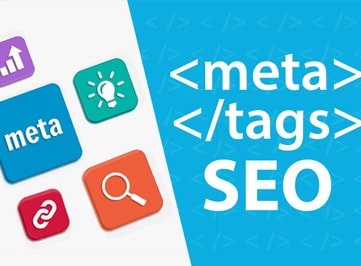
Meta Tags
Every page of your website that you want to index in Google has to have a meaningful and unique meta title and meta description. It’s also important that these two elements include your most important keywords and have the appropriate character length.

Page Content
HTML headings are important because they give page content a better structure, so it’s easy to comprehend. It’s also important to pay attention to (single) keyword densities, the correct implementation of rich media such as images, internal and external linking, and schema markup.
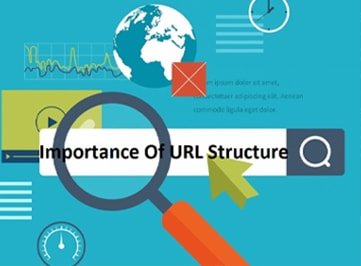
URL Structure
URLs are a direct ranking factor, as are their structures. They warrant a better understanding and better usage of your website. While basically every site works with subdirectories, subdomains are less common.

Responsiveness
In this day and age, a website has to be responsive not only to be accessible, but also to be easy to use for mobile users.

Page Speed
With Google, page load speed is a direct ranking factor, and it becomes more important as mobile searches continue to increase.
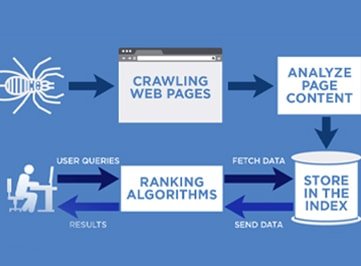
Crawling and Indexation
If your website can’t be crawled or indexed as it should, usability problems are inevitable. Common mistakes are missing or blocked robots.txt.

Other Technical Aspects
Other technical aspects that must be considered are page redirects, broken link fixes, and 404 errors, among others.
Talk to an Expert Today for your Keyword Research & Competitor Analysis.
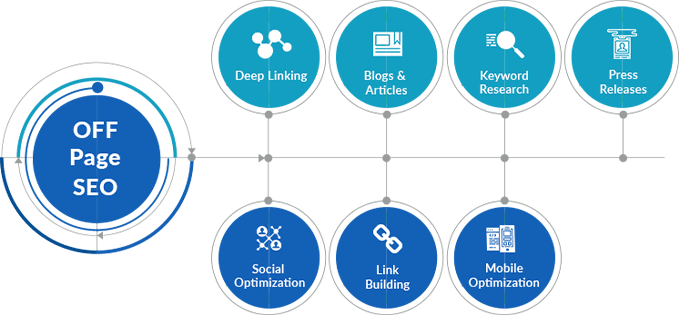
Off-Page SEO: Your Fuel
To see the results of your off-page SEO efforts, you will have to practice patience, because it takes time for a website to benefit from new links.
The most important Off-Page SEO elements include the following:

Backlinks and Linkless Brand Mentions
Backlinks are the most important off-page ranking signal for Google. Basically, the more high-quality backlinks that are pointing to a site, the higher the site’s position in the SERPs.

Social Signals
Social signals are likes, shares, and comments on social media platforms. Multiple case studies have shown that there is a correlation between a strong social presence and higher SERP rankings.

NAP-Consistent Business Citations
Citations are only important for local businesses and local SEO. It’s essential that citations are name, address, phone number (NAP)-consistent.

Google My Business
Again, for local businesses, it’s almost mandatory to register with Google My Business (GMB). It lets you add lots of information, such as opening hours, images, video, and blog posts.

Business Reviews
On the one hand, positive customer feedback benefits your business’s online reputation and creates trust among customers. On the other hand, dozens of 4- and 5-star reviews will also give you a ranking boost.
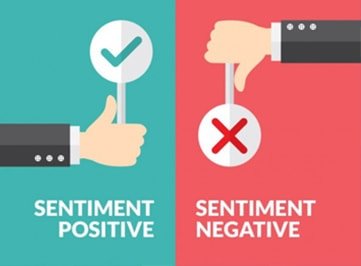
Anchor Text
The visible, clickable text in a hyperlink that often times appears in blue and underlined. To ensure that anchor text is SEO friendly, it must be concise and relevant to the target page [it links to].
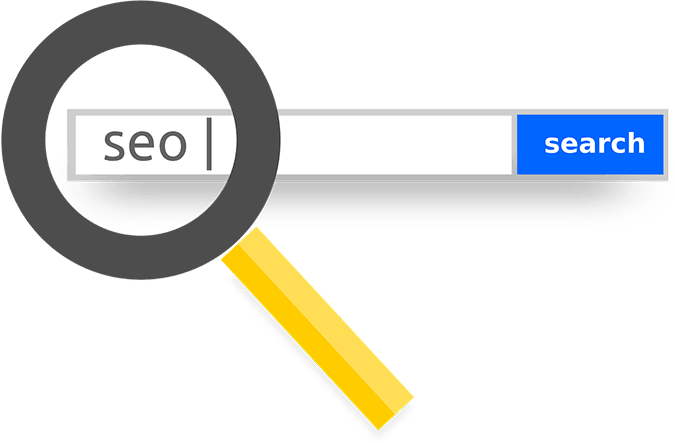
Keyword Research
Keyword research is a special field in SEO that we really emphasize. It’s the first step toward effortless rankings—but only when done right! Keyword research is about finding keywords that users type into the Google search bar to find the content they are looking for. A keyword can consist of a single word, multiple words, and even a whole phrase or sentence, also called long-tail keywords. Long-tail keywords are often phrased as questions; for example: “How can I improve my online reputation?” With our service, we focus on finding those long-tail keywords, as they are generally easier to rank. Thorough keyword analysis also requires looking at what your competitors are doing. Studying best practices for your niche will help you make better keyword choices and optimization decisions.
Talk to an Expert Today for your SEO Strategy & Consultation.
Our Approach

Comprehensive SEO Audit
We will conduct a comprehensive SEO audit to determine the current state of your website and potential for growth.
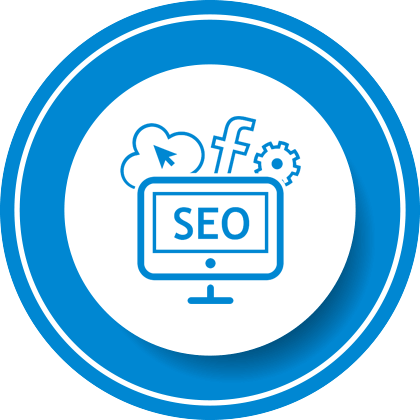
Implementation Techniques
We implement only the most effective optimization techniques that bring guaranteed results.
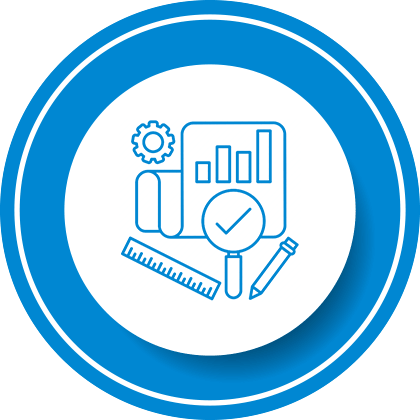
Monthly Analysis and Reports
You can’t measure success if you don’t monitor the outcomes of your actions. Clients receive monthly or quarterly reporting.
Discovery
At the beginning of each collaboration, we learn about our client’s business and goals; his or her industry and market, including competitors; and, of course, his or her website.

Competitor Analysis
Next, we identify untapped keyword potentials that provide great opportunity for growth. A competitor analysis helps to determine additional areas of opportunity and also detect possible risks.

Strategy
In phase 3, we develop an on-page, off-page, and content strategy for your website. The on-page strategy covers all the changes that need to be made to the website code and content, while the off-page strategy includes link-building techniques, a list of potential partners for outreach, review management for local businesses, and more. Content strategy determines what kind of content needs to be created for self-publishing and social media, and also for outreach campaigns (e.g., guest posts) and other PR efforts. when an unknown printer took a galley of type and scrambled it to make a type specimen book.
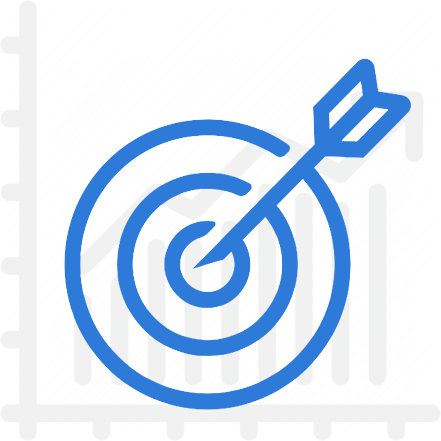
Goals
If you can’t measure it, you can’t improve it. We want to make sure that we are not wasting any resources. This is why we define measurable short-term and long-term goals to evaluate the performance of all our campaigns.

Implementation
Enough of the theory; time for implementation. Existing content will be edited in addition to publishing new high-quality articles based on a content schedule. Also, any technical issues will be resolved. Public relations is key. It involves promoting your business using press releases, industry magazines, blogs, general authority websites, and social media. The goal is to increase content exposure to generate extra traffic and earn dozens of backlinks.
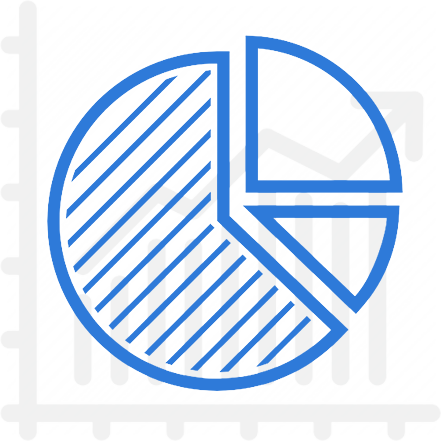
Analysis
In the last phase, we analyze the outcomes of our efforts and provide detailed information in monthly or quarterly performance reports. Adjustments will be made to make sure that all campaign goals will be met in the shortest time possible.
Building Blocks in Digital Marketing:
Here at Blue Ocean Global Technology, we consider SEO as only one of the building blocks in digital marketing. When combined with other marketing channels, the online presence of your business will grow exponentially and thus maximize ROI.
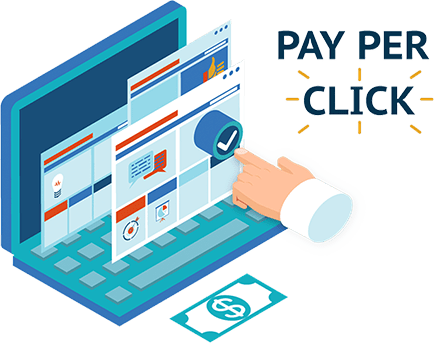
SEO and PPC
We view SEO and pay-per-click (PPC) not as two separate entities, but as two marketing channels that should complement one another or each other—your choice On the one hand, SEO provides one of the best ROIs, but requires patience. On the other hand, PPC delivers instant results, but is much more expensive and cannot be solely relied upon if your main goals are to build brand engagement and trust with prospective customers.
Therefore, PPC helps test the keywords that are part of your SEO campaigns. You can easily determine which ones convert and which ones don’t. You can also use PPC to test different landing page versions, titles, descriptions, and page content in general.
SEO and Social Media
Today, success with SEO often requires a more diverse approach and professional skills beyond mere optimization techniques.
In our opinion, social media is the most powerful tool for leveraging your digital marketing strategy. It adds authority and credibility to your site and helps with branding and networking, which leads to higher link acquisition. Consequently, it can indirectly impact your organic search rankings.
Why is social media so efficient? Because it’s a great tool for content distribution. Social engagement through fans and followers also leads to increased content visibility and longevity, better brand recognition, and trust. Social media also helps to identify what type of content your audience likes and what topics generate the most interest.
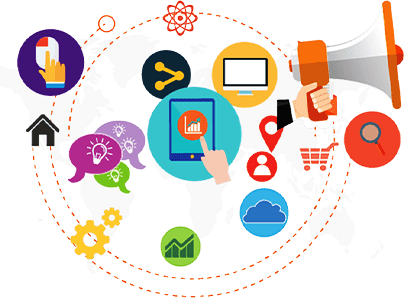

SEO and PR
Search engine optimization and public relations share the same goals: Distributing information about your business to your target audience and expand reach. Thus, they must go hand-in-hand to trigger exponential growth.
One way of achieving this is by promoting content that was created for SEO by means of PR. PR also helps you to find out what’s trending and which content works better with your target audience in general.
Conversely, you can build on your SEO expertise to make PR activities much more effective and on point. Seamlessly integrating your PR and SEO strategies will build a solid profile and improve your overall digital presence.
We specialize in building a strong digital presence and increasing web traffic.
Schedule a 30 minute phone or video conversation to learn more.
SEo Faq
Have any
Questions?
